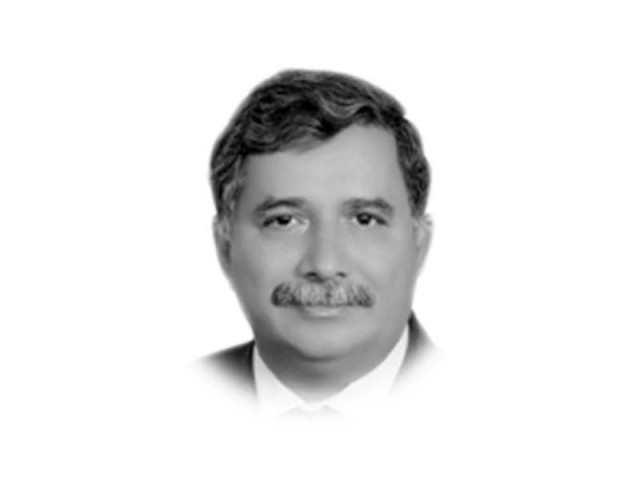Lahore Process and Afghan peace
Despite six rounds of talks already held, the question boggling the mind is: what mars the outcome?

The author is former Home Secretary and ex-IGP. He currently heads a think tank Good Governance Forum and can be reached at aashah7@yahoo.com
The conference appeared to be a prelude to the visit of President Ghani to Pakistan and subsequent formal talks to be held in Doha this month. Although the hosting of the conference by an NGO rather than the Foreign Office attracted criticism from certain quarters, it provided an image-building exercise to the Afghan government, strengthening the argument that Afghanistan was not represented only by the Taliban but also by a cross-section of the people. In this sense, the assembly of various political leaders provided an opportunity for the multiple stakeholders of Afghanistan to raise their voice so as not to be abandoned in any future settlement. In the same flurry of diplomatic parleys, Pakistan is optimistic that the Taliban would ultimately agree to an intra-Afghan dialogue and political settlement.
Despite six rounds of talks already held, the question boggling the mind is: what mars the outcome? To find an answer, it is necessary to understand the viewpoints of the major parties to the dialogue. Zalmay Khalidzad, the US special envoy, was very explicit while expressing his views that they wanted comprehensive peace settlement and not just a withdrawal agreement. As opposed to this, the Taliban want a clear timeframe for complete withdrawal of foreign forces and do not want to sit across the table with the Afghan government. The other important points for comprehensive political settlement are counterterrorism assurance, negotiation leading to political settlement and a complete ceasefire.
The UN Security Council in its meeting held on 19th June has also reiterated the inclusion of the Afghan government, human rights protection and credible and timely elections on 28th September for a comprehensive solution. Yamamoto, the UN representative, has also more or less expressed similar views prodding the Taliban to come to the table and directly negotiate with the Afghan government. Adeela Raza, the permanent representative of the Government of Afghanistan to the UN, explaining the point of view of her government, says that the Government of National Unity has long believed that peace could only be achieved through a process supported by Afghans, protecting the essence of the constitution based on equal rights for all including women. This appears to be the voice of the silent majority that does not hold guns.
While most of the analysts view the undergoing peace process from the perspective of the US and the Taliban, they ignore the other equal stakeholders. For instance, China’s province Xinjiang shares border with Afghanistan. Besides connectivity of One Belt One Road with Eurasia, counterterrorism is also its major concern. Russia and Central Asian states have also the same stakes in terms of economic growth and countering terrorism. Durable peace in Afghanistan is critical for many international players and needs a multifaceted approach to be achieved as international trade through this route benefiting all such countries of the region is dependent on such assumption.
Although there are multiple stakeholders in the Afghan reconciliation process, the ultimate political outcome needs to be Afghan-owned, not an imposed and arbitrary one. The will of the Afghan people is paramount in reaching an enduring peace environment. Any part of the settlement that neglects the will of the natives will lead to their alienation, resulting in unrest in the region. Such a settlement could also pave the way for a similar situation in the past where the Taliban exploited the emergence of a political vacuum.
The Taliban need to be mindful of the fact that all of us live in the modern age of complex mutual relationships of interdependence. Therefore, over reliance on the traditional gun politics will not always be fruitful. In this backdrop, the author was asked a question in a TV talk show as to who held the key to the successful results of the peace process. The author’s quick response was: Taliban.
The stalemate in the rounds of talks has been caused due to the adamant stance of the Taliban not to negotiate with the Afghan government and their insistence on a timeframe for the withdrawal of foreign troops. The Gordian knot of the Afghan Peace Process, therefore, can be untied by the Taliban. They need to realise that a solo flight will not produce desired results. They need to show some flexibility and acknowledge the legitimacy of a democratically-elected Afghan government and the Afghan constitution. They need to accept that the constitution is the supreme law of the land and, thus, take oath under the constitution. The Taliban ought to come into the political mainstream by contesting free and fair elections. A withdrawal agreement without reaching such a permanent settlement acceptable to all stakeholders is likely to create a vacuum in Afghanistan, possibly leading to a civil war.
Published in The Express Tribune, July 3rd, 2019.
Like Opinion & Editorial on Facebook, follow @ETOpEd on Twitter to receive all updates on all our daily pieces.














COMMENTS
Comments are moderated and generally will be posted if they are on-topic and not abusive.
For more information, please see our Comments FAQ